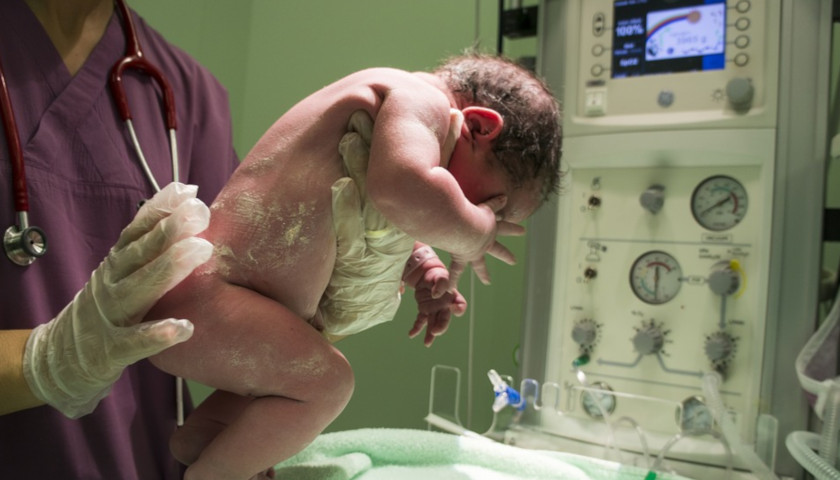by Mary Margaret Olohan
Birth rates in the United States continue to fall as millennials put off having kids, and experts warn that coronavirus could make people less likely to have children.
Federal figures released Wednesday show that women in the U.S. had babies record-low rates in 2019, causing the number of U.S. births to reach the smallest number in 35 years, the Wall Street Journal reports. The data demonstrates that birth rates in the U.S. have not rebounded since the 2007-2009 recession when childbearing began declining.
 U.S. women gave birth to about 3.75 million babies in 2019, a number which is down 1% from 2018, the WSJ reports from Centers for Disease Control and Prevention’s National Center for Health Statistics figures.
U.S. women gave birth to about 3.75 million babies in 2019, a number which is down 1% from 2018, the WSJ reports from Centers for Disease Control and Prevention’s National Center for Health Statistics figures.
CDC data show that fertility rates fell 2% — 58.2 births per 1,000 women between the ages of 15 and 44 — reaching the lowest levels since the government began tracking this data in 1909, the publication reports.
Millennials are slower than their predecessors to form families, a tardiness that some say could be attributed to lack of financial security.
“There are a lot of people out there who would like to have two children, a larger family, and there’s something going on out there that makes people feel like they can’t do that,” Melanie Brasher, assistant professor of sociology at the University of Rhode Island, told the WSJ.
The coronavirus could add to this decline in births, other experts warn. Low paying jobs combined with high rents and unpredictable circumstances may cause Americans to pause before they start families, Dr. John Santelli, a Columbia University professor of population and family health, told the Associated Press.
“This unpredictable environment, and anxiety about the future, is going to make women think twice about having children,” Dr. Denise Jamieson, chair of obstetrics and gynecology at Emory University, told the AP.
Demographers are not even debating about whether there will be a decline in births caused by the pandemic, but rather about whether the decline in births will be lasting, the publication reports.
“The decline due to COVID-19 might be different given the extent and severity of the crisis, and the long-lasting uncertainty that is caused by it,” Hans-Peter Kohler, a University of Pennsylvania fertility researcher, told the AP.
Lead author for the CDC’s report Brady Hamilton said that it is unclear what exactly will happen with births in 2020, since the impacts of the pandemic won’t be clear until late 2020 or early 2021.
– – –
Mary Margaret Olohan is a reporter for the Daily Caller News Foundation.




